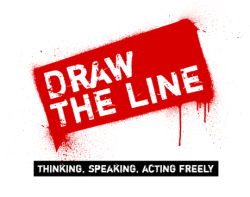6 May 2022 | Hungary, Opinion, Poland, Ruth's blog, United Kingdom, United States

Prime Minister Boris Johnson samples an Isle of Harris gin. Photo: Justin Tallis/PA Wire/PA Images
This week was election week in the UK and, as a former parliamentarian, you’d expect me to be writing about the joy of being able to express ourselves at the ballot box and the vital importance of democratic values when they seem so under attack at the moment in too many places to mention.
I love elections, I love the debate, I love speaking to people on their doorsteps and there is nothing like a successful election count for your party. I cherish the fact that I am lucky enough to live in a democracy, that typically my human rights are protected because my fellow citizens also believe that democracy is something to be protected. But voting is a means to an end – it allows us all to hold our politicians to account and to ensure that our core values are reflected in our government. This only works if you believe that your democratically elected government is going to stick to the rules and it’s that that I have been reflecting on for the last couple of weeks.
There are some conversations that keep coming back to you. That spark debate and lead you to question the status quo. Last month, I had a series of meetings where there was a recurring theme that did just that.
International norms and the rule of law, which underpin both our democratic states and our world order, are only relevant if state actors recognise them and that culturally we all acknowledge their necessity.
The moral authority of democratic countries is dependent on how they choose to apply the rule of law – both domestically and internationally. On whether they are prepared to defend core democratic values, even when inconvenient, on a national and international stage. It’s the application of these norms and rules which empower democratic states to challenge others when they break them. And the recurring message from my meetings was that there was no longer an acceptance that democratic states were prepared to uphold the rule of law – if it didn’t suit them. And therefore, we are losing our moral authority to intervene when others break the law.
Poland is being fined one million euros a day by the European Court of Justice for undermining its domestic judiciary. Rather than comply with the ruling, Poland has been happy to let the fine mount up – a proportion of its EU finding withheld to pay for it.
The European Commission is also cutting funding to Hungary for eroding legal standards in the EU.
The British Prime Minister has been fined for breaching his own Covid-19 regulations and, pre-pandemic, was found to have unlawfully suspended Parliament.
In the US we saw incitement by leading politicians to undermine a smooth transition of power after the last presidential election.
This would be dangerous at any time, but right now when Russia and China are both attempting to leverage their power and influence, invade and threaten their neighbours we have never needed to uphold our international norms more.
The leaders of our democratic nation states speak with a level of moral authority on a global stage because their voice is our voice, because they are seen to uphold our core values – and they can therefore challenge other world leaders when they cross the line. If our current global order is to survive it’s therefore imperative that our leaders uphold the law – whether it suits them or not.
The rule of law is the basis of the campaigns that Index runs. Our work is framed by Article 10 of the European Convention on Human Rights – that everyone has the right to freedom of expression. We demand that national states uphold the values espoused by the Universal Declaration of Human Rights. If our leaders aren’t upholding these values, then it’s not just their voices that are weakened but ours too.
My fear is that when international norms aren’t followed – when our leaders opt in and opt out of laws and norms they don’t like – then repressive regimes thrive and their citizens are the ones that suffer.
So, this is really a plea to all of us who are lucky enough to live in democratic societies – hold your leaders to account and make sure that they comply with the law – so that we all have the moral authority to hold the tyrants’ feet to the fire.
16 Oct 2014 | Draw the Line, Youth Board

This month the Index Youth Advisory Board is discussing legal regimes and how they nurture or stifle the free expression of ideas. Examples of draconian laws abound: from Russia’s law banning “homosexual propaganda” to the UK’s use of RIPA legislation to violate the confidentiality of journalists’ sources.
When it comes to free speech: laws, what are they good for?
Legal frameworks protect speech and broader free expression. Take for instance Article 19 of the Universal Declaration of Human Rights which tells us that we all have the right to freedom of opinion and expression. Most of us, I’m sure, would cherish this right – who wouldn’t want to be able to express themselves freely and say what they like without the interference of the state?
In the United Kingdom, Article 10 of the Human Rights Act grants citizens freedom of expression. Most countries have different forms of Article 10. It is these laws – the ones that promote and protect our right to free speech – that form the crucial pillars of any democracy.
But do all laws protect our right to free speech?
Article 10 does a good job of granting us the confidence to speak out and ensure our voices are heard, but do other laws do the same? Or are there laws that, in some way, serve to restrict free speech? The example from Russia underline the use of legislation to restrict the right to expression. The law also curtails the right to assembly, another important part of a democratic society.
When you look into Article 10 itself, you begin to learn about the restrictions of the law and begin to understand how, in many ways, the state still does have authority over our freedom of expression. For example, Article 10 can be restricted “in the interests of national security” and in order to “maintain the authority of the judiciary”.
And what about the countries that don’t have specific laws that promote freedom of expression as strongly as the UK’s Article 10? Many may find it easy to conclude that countries like Iran have more laws that serve to restrict free speech, rather than protect it. It’s interesting to look at blasphemy laws in this instance to examine whether it protects the rights of those who are religious or restricts the rights of those who wish to criticise religion.
This month on Draw the Line, we discuss the impact a country’s laws have on our freedom of expression. Join the discussion and let us know whether laws serve to protect or restrict your right to free speech.
This article was posted on 16 Oct, 2014 at indexoncensorship.org
15 Feb 2012 | Campaigns, United Kingdom
 Any reduction in the scope of the Freedom of Information Act in limiting its costs or capping the number of requests organisations can make will have an impact on Article 10 rights to freedom of expression, Index has said in a submission to the Commons Justice Select Committee.
Any reduction in the scope of the Freedom of Information Act in limiting its costs or capping the number of requests organisations can make will have an impact on Article 10 rights to freedom of expression, Index has said in a submission to the Commons Justice Select Committee.
(more…)
30 Apr 2009 | Uncategorized
This is a guest post by Katriona Lewis
Tuesday night saw an interesting debate hosted by The Times and Matrix Chambers on the motion ‘The new law of privacy is strangling the free press’. Times editor James Harding, acting as chair, opening proceedings by declaring this a ‘landmark week’ for journalism following the opening of family courts to the press.
First to argue for the motion was former editor of The Times Sir Simon Jenkins, who said the line was blurred on what constituted ‘intrusion’, and claimed that new privacy laws would serve to protect the rich and powerful. Sir Simon said that we already have good protections in place: ‘In the UK we have good laws on libel. You can’t tell lies about people but you can tell the truth.’
‘What tosh,’ columnist Matthew Parris countered. He explained that he sees privacy law as ‘clarification of what is, and what is not, an individual’s (not unconditional) right to privacy’.
Index on Censorship trustee Sir Ken Macdonald QC was next to speak for the ‘yes’ side, arguing that the law would engender too much caution in editors. ‘It would be good to extinguish gossip, but not to leave the powerful alone,’ he suggested, while expressing concerns that we are moving slowly towards French and Italian legal models. In contrast to Harding’s earlier positive declaration, Sir Ken warned that ‘it’s a very unhappy time for us to be placing whole categories of reporting into a box named “forbidden”.’
Next, former Tory MP Edwina Currie characterised the information she believes we must know, such as politicians’ expenses being exposed through the Freedom of Information Act. Ultimately Ms Currie conceded that there is no ‘perfect balance’ between Article 8 and Article 10 for the entitlements of privacy and press freedom.
Former Sun editor David Yelland was last to stand for the motion, attesting to the feeling that editors are ‘less free to do their jobs’ since he left the Sun in 2003, and are now horribly constrained by potential legal costs.
At the beginning of the evening, facilitator Conor Gearty counted a show of hands in the audience which indicated that the majority disagreed with the motion. A closing vote saw a slight shift in views, and Professor Gearty concluded that those against the motion had won the debate, ‘but those for won the argument’.



